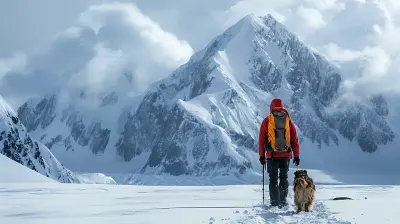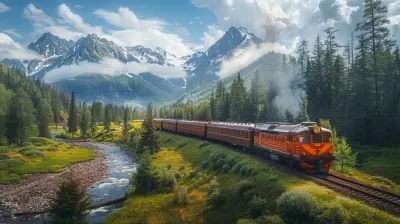Wildlife Encounters in Alaska’s Remote National Parks
26 September 2025
If you're looking for a heart-pounding, jaw-dropping, absolutely unforgettable experience, let me introduce you to Alaska’s remote national parks. Picture this: you're deep in the wild, far from the hum of civilization, and suddenly—bam!—a massive grizzly lumbers past, barely giving you a glance. If that doesn't get your adrenaline pumping, I don't know what will.
From towering moose to elusive wolves, Alaska is a wilderness-lover’s dream. But don’t be fooled—this isn’t your average zoo visit. Out here, you're stepping into their world, where bears, caribou, and bald eagles reign supreme. So, grab your binoculars, lace up your boots, and let's dive into the wilder side of the Last Frontier. 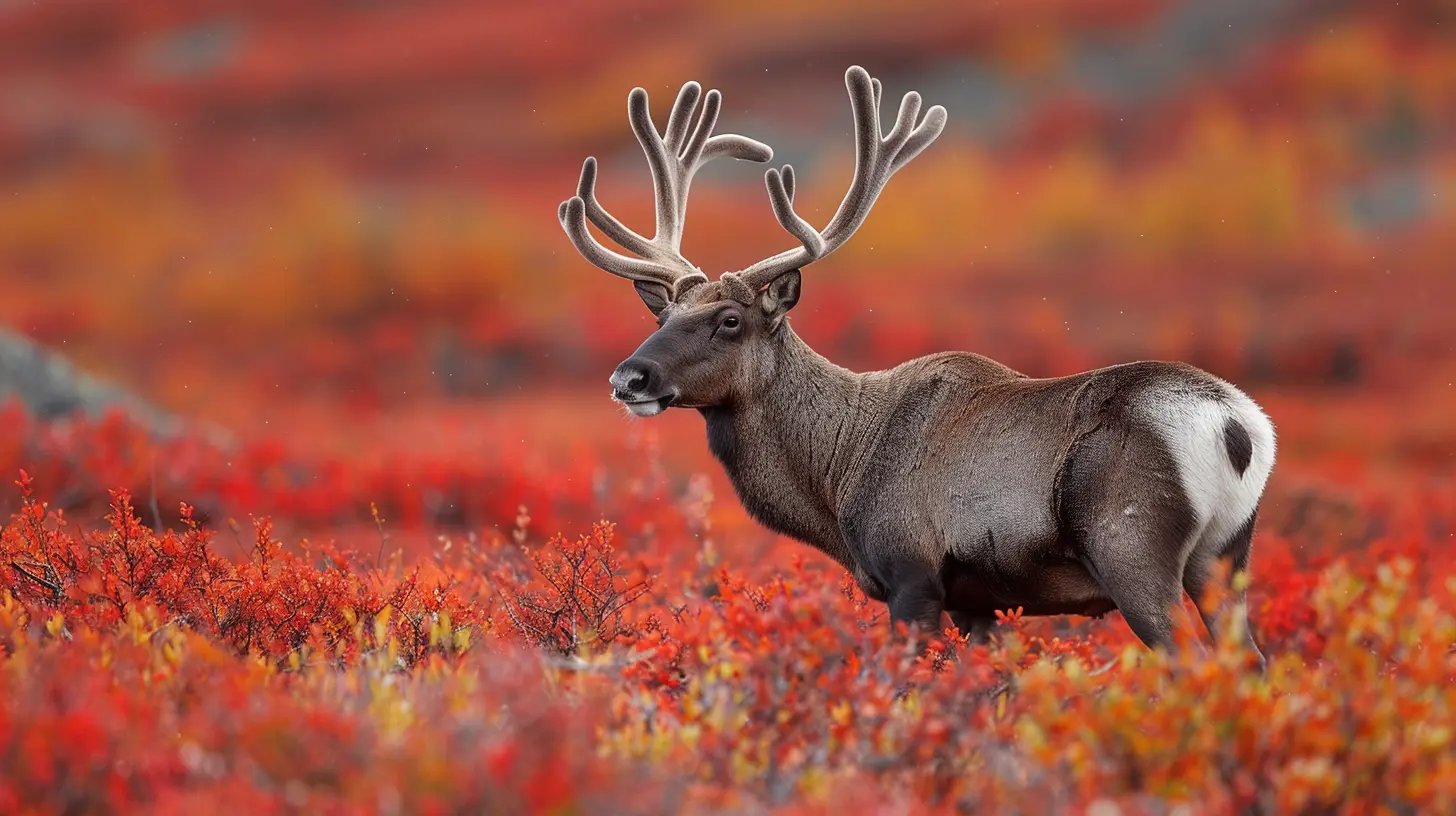
1. Katmai National Park: The Land of the Fishing Bears
If you've ever seen that iconic image of a grizzly bear snatching a salmon mid-air at a waterfall, chances are it was taken at Katmai National Park & Preserve. Home to one of the largest brown bear populations in the world, this park is bear country on steroids.Where to Spot Bears
- Brooks Falls – The single best place in the world to witness bears fishing for salmon like pros.- Hallo Bay – Bears often roam the coastline here, foraging for clams and berries.
Bear Viewing Tips
- Stay at least 50 yards away (or more) from these fuzzy-yet-ferocious creatures.- Move slowly and never run—unless you want a bear mistaking you for dinner (not recommended).
- Visit in July and September for prime bear-watching action.
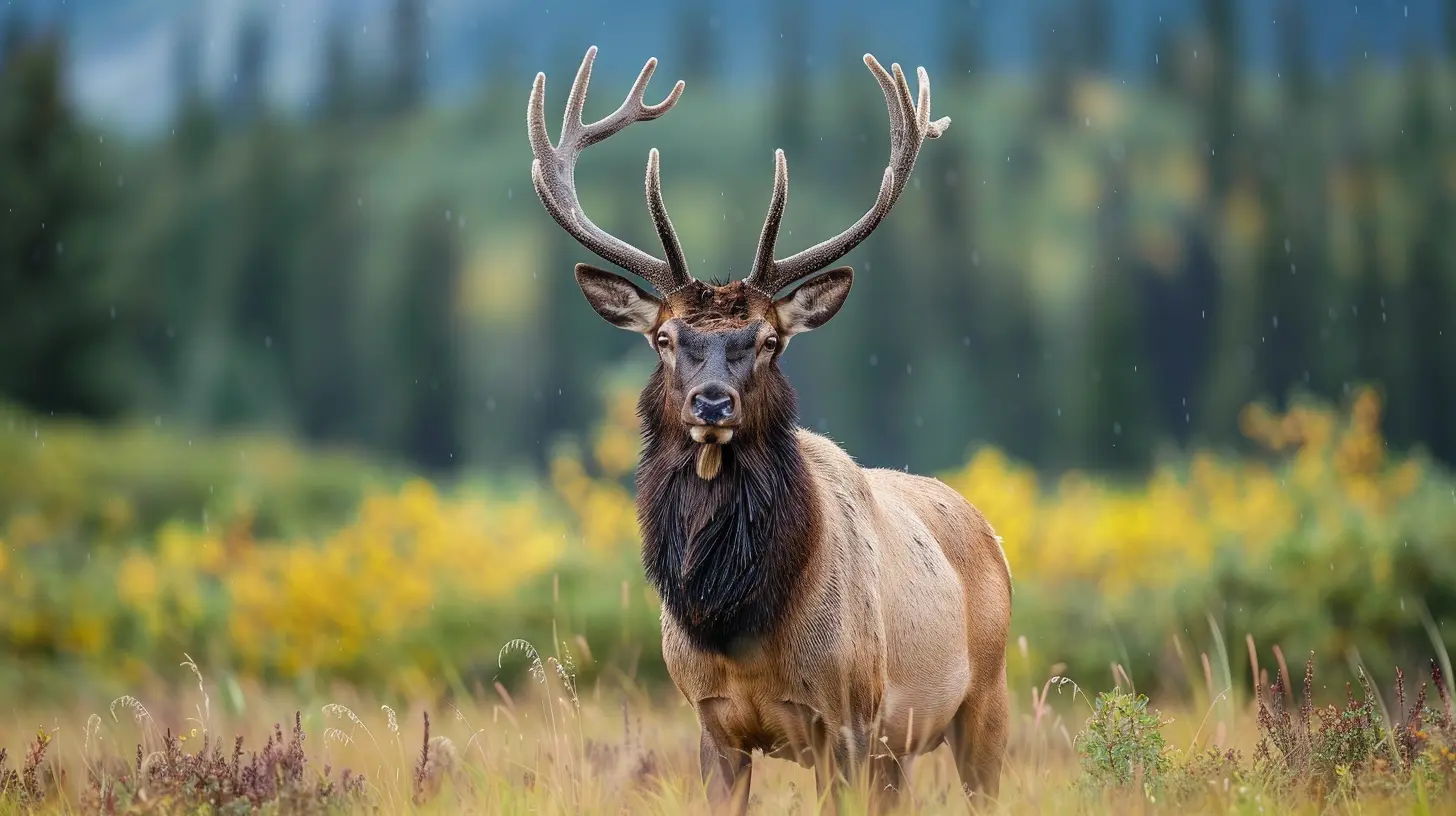
2. Denali National Park: Where Wolves Howl and Moose Roam
Denali is home to North America’s highest peak, but trust me, the real highlights walk (or run) on four legs.Moose on the Loose
These towering, long-legged giants are the true kings of Denali. They often wade through lakes, munching on aquatic plants like they own the place (because they kinda do). Want to see one? Check near Horseshoe Lake or the Teklanika River.Wolves: The Elusive Ghosts
Denali is one of the best places in the U.S. to see wolves in the wild—but spotting them requires patience (and a little luck). Your best bet? Find an elevated spot around Savage River at dawn or dusk.Pro Tip: Ride the Bus
Denali keeps things wild by limiting personal vehicles. Hop onto a park shuttle and keep your eyes peeled—you never know what might cross your path!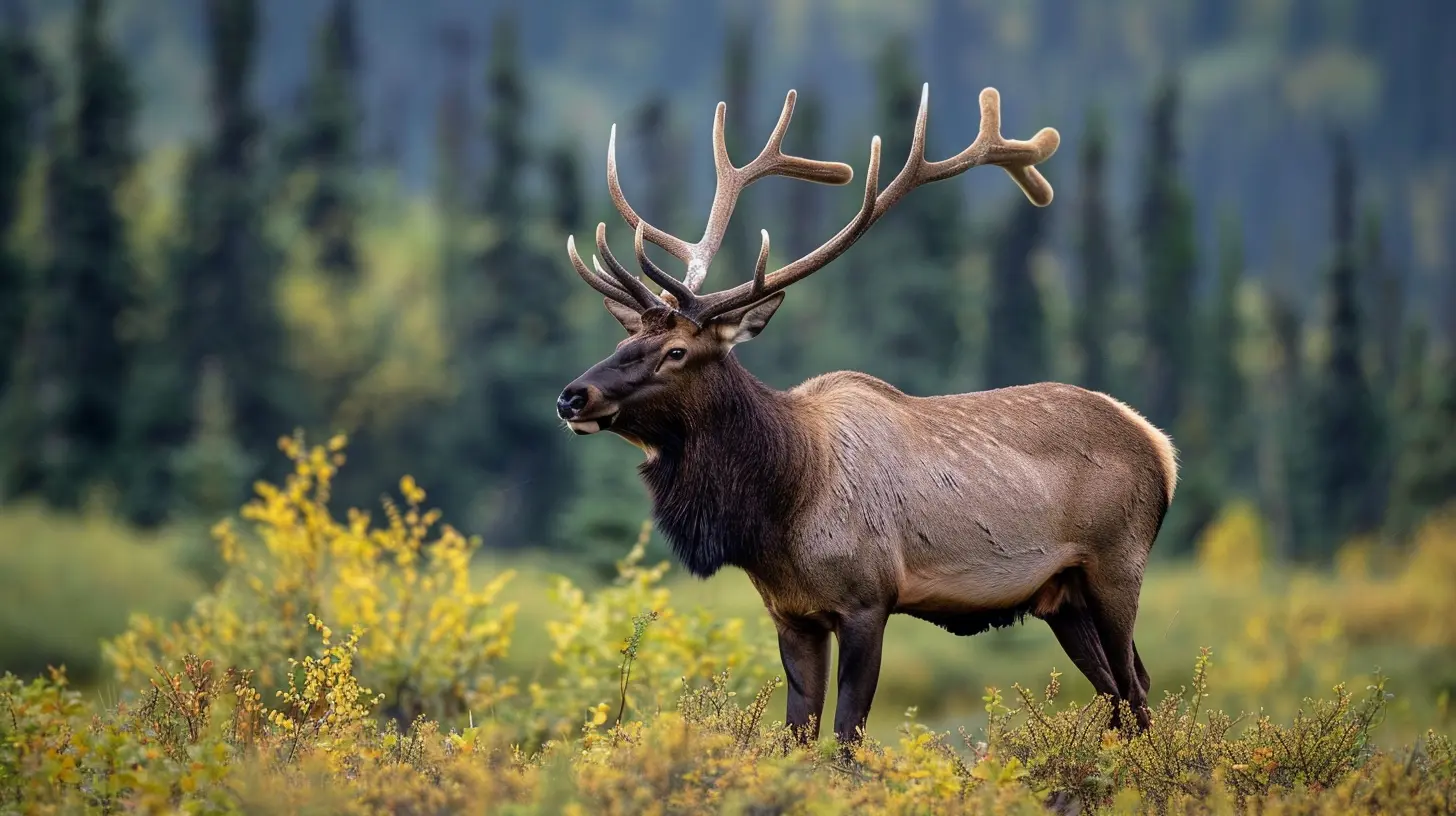
3. Gates of the Arctic: The Ultimate Remote Adventure
Ever wanted to visit a national park with zero roads, zero trails, and zero crowds? Welcome to Gates of the Arctic National Park, where the wilderness is as untouched as it gets.Encounters With the Caribou Herds
Thousands of caribou migrate through this park each year, a mesmerizing spectacle of hooves and antlers stretching for miles. If you want to see them, time your visit for late summer or early fall during their movement south.Wolverines: The Underdog Predators
Wolverines may be small, but don’t let their size fool you—these little guys have tempers hotter than a jalapeño in July. Your chances of spotting one? Slim, but not impossible. Stay near high-altitude ridges for the best odds.Why This Park is Not for the Faint-Hearted
- No cell service (yep, completely off the grid).- You have to fly in or hike in—no easy roads here.
- Pack like your life depends on it—because, well, it kinda does.
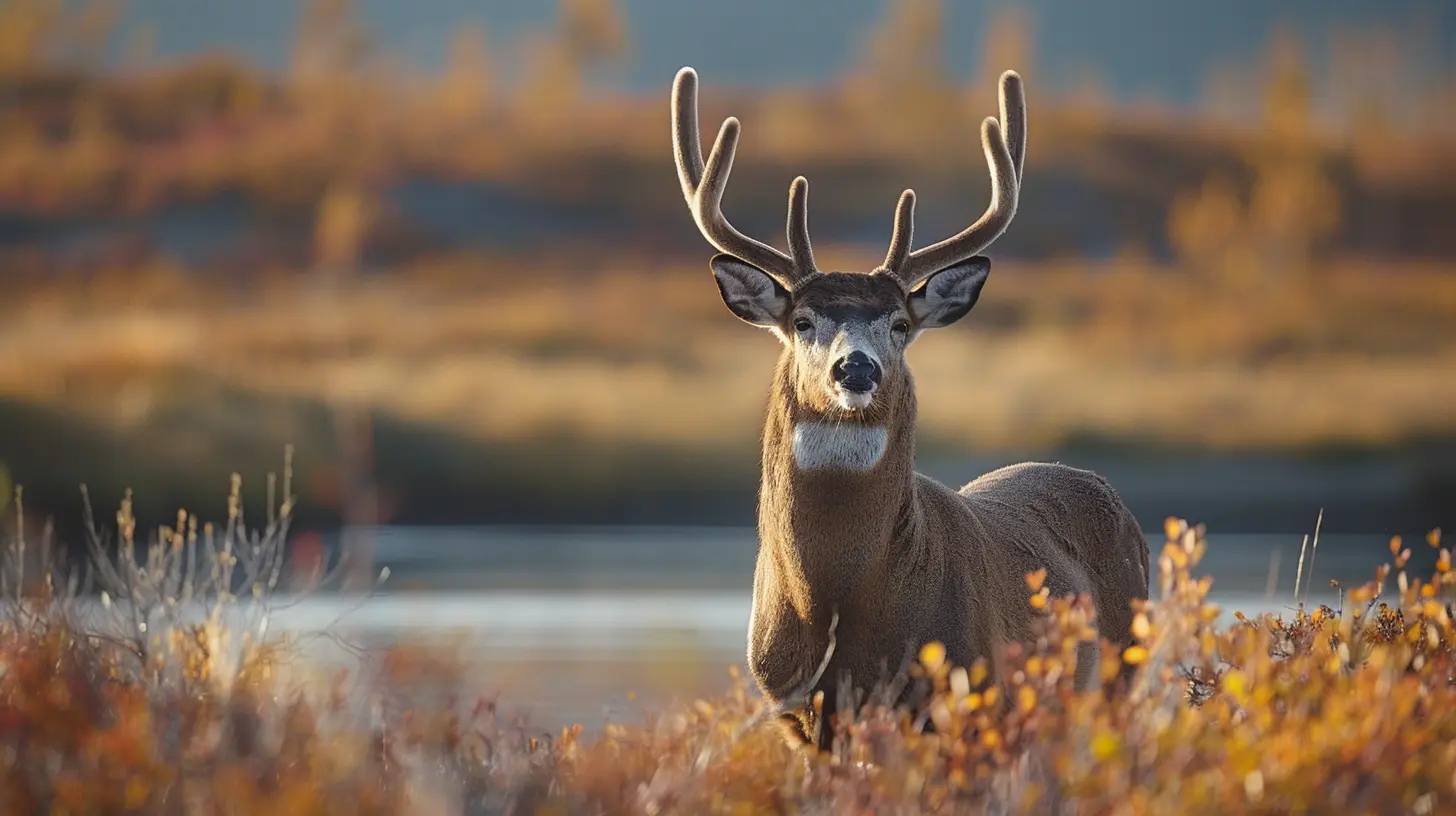
4. Kenai Fjords: Marine Wildlife Meets Glaciers
Alaska isn’t just about land animals—its waters are teeming with life. In Kenai Fjords National Park, the cold, nutrient-rich waters attract whales, sea otters, and puffins like some kind of Arctic Disneyland.Orcas and Humpback Whales
- Best Time to See Them: June through August- Best Spot: Take a boat tour from Seward Harbor and keep your cameras ready!
Sea Otters: The Floating Furballs
These guys are basically the puppies of the sea—adorable, playful, and always busy cracking open shellfish on their bellies. You’ll find them bobbing in the water near Aialik Bay.The Puffin Parade
Ever wanted to see a real-life cartoon bird? Say hello to the puffins, the goofiest-looking seabirds in Alaska. They nest along cliffs and islands, especially around Resurrection Bay.5. Wrangell-St. Elias: The Park Bigger Than Some Countries
Wrangell-St. Elias is America’s largest national park, bigger than Switzerland. And just like Switzerland, it has glaciers, mountains, and—of course—plenty of wildlife.Dall Sheep: The Cliff Climbers
These white-coated, curly-horned sheep are insane rock climbers. You’ll often see them perched on near-vertical cliffs, casually defying gravity. Try spotting them near Root Glacier.Lynx: The Secretive Felines
Lynx aren’t easy to find, but if you’re lucky, you might catch a glimpse of these fluffy, stealthy hunters slinking through the forest. Look for tracks in fresh snow around Kennecott.Why This Park is a Hidden Gem
- You can actually drive in (unlike some other remote parks).- It’s a paradise for hardcore hikers and backcountry lovers.
- Fewer tourists = more solitude and a better chance of wildlife encounters.
FAQs About Wildlife Viewing in Alaska’s National Parks
Is it safe to see wildlife up close?
Absolutely not! Always keep your distance—50 yards for most animals, and at least 100 yards for bears and wolves. Remember, these are wild creatures, not Instagram models.What’s the best time to visit?
Summer (June to August) is prime wildlife-viewing season. But if you want fewer crowds and a shot at seeing the Northern Lights, consider September.Do I need a guide?
While not required, traveling with a guide can increase your chances of spotting wildlife safely. Plus, they know all the secret spots!What should I bring?
- Binoculars (trust me, they make all the difference)- Bug spray (mosquitoes in Alaska are basically little vampires)
- Warm layers (even in summer, it gets chilly)
- Bear spray (hopefully, you won’t need it, but better safe than sorry)
Final Thoughts
Alaska’s remote national parks are the real deal—raw, untamed, and bursting with wildlife at every turn. Whether you’re watching a bear fish for salmon, spotting a moose wading through a river, or witnessing thousands of caribou on the move, these encounters leave a mark on your soul.So, if you’re ready to trade city life for an adventure where nature rules, pack your bags and head north. Just remember—out here, you’re the visitor. Stay respectful, stay safe, and most importantly, soak in every wild, unforgettable moment.
all images in this post were generated using AI tools
Category:
National ParksAuthor:

Reed McFadden
Discussion
rate this article
1 comments
Jet Murphy
Experience breathtaking wildlife in Alaska’s pristine national parks.
September 28, 2025 at 4:45 AM

Reed McFadden
Thank you! Alaska's remote national parks truly offer unforgettable wildlife experiences in stunning, untouched landscapes.
